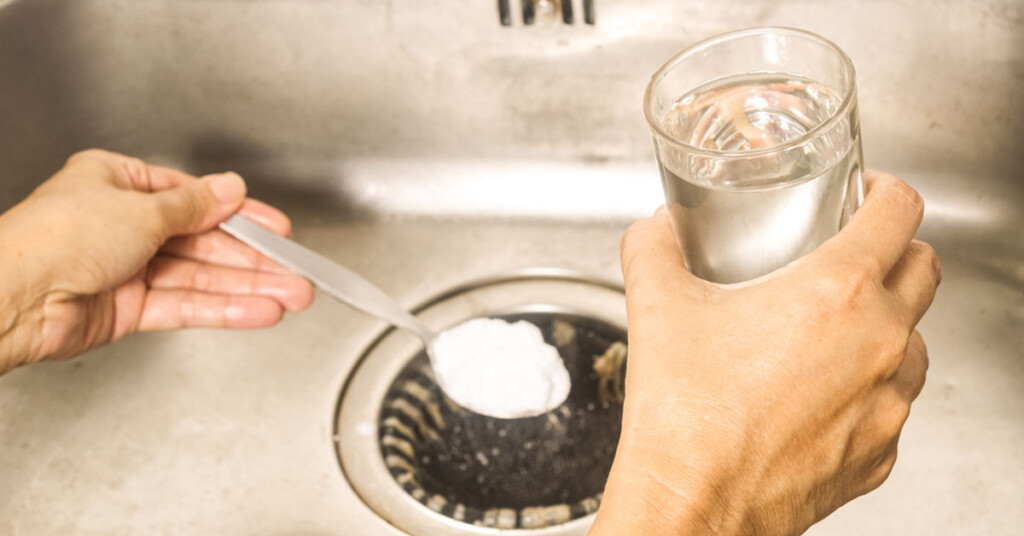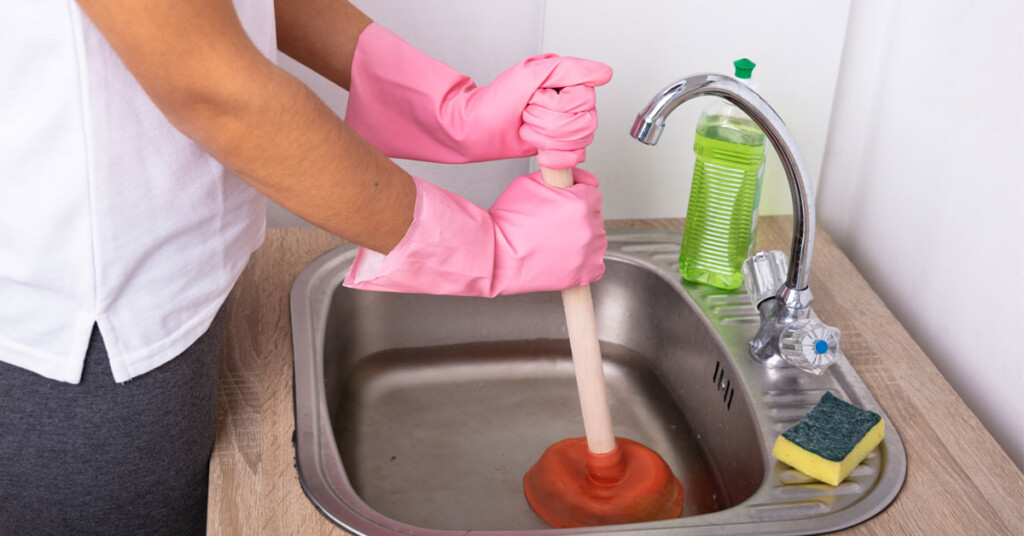Drain Cleaning Tips

We’ve all been there—you’re washing your hands or flushing the toilet, and instead of going down the drain, the water just keeps rising. Besides being an inconvenience, slow-draining or clogged drains can cause expensive damage if not handled properly and quickly.
Thankfully, you may be able to eliminate clogged drains with simple, at-home solutions before calling a plumber. Here are our top 5 most effective drain cleaning tips homeowners can use to return their drain pipes to peak performance.
Hot Water
Simple but effective, pouring hot water down a clogged or dirty drain could be all you need to return things to normal. Pour boiling water down the drain for about 15 minutes, pausing between each pour. The heat may be enough to get clogged materials and gunk moving again.

Baking Soda and White Vinegar
Combining baking soda and vinegar causes a chemical reaction that will bubble up and break down loose materials in pipes. The best part is that this powerful combination has no effect on the structure of the surrounding pipe walls.
Pour one cup of baking soda followed by one cup of vinegar down your drain pipes, and follow with boiling water after around five minutes. If all goes well, this technique will remove clogs and clean your drain without any harsh chemical drain cleaners.
Drain Snake/Bent Wire Hanger
Drain snakes are what professional plumbers typically use to relieve clogs. This tool can be found at your local home improvement store and most grocery stores. To use a drain snake:
- Feed the snake through the drain pipe, turning the handle clockwise until you encounter debris.
- Rotate the snake againstthe blockage so the snake latches onto the clogged materials.
- Pull the snake from the drain slowly, removing the clogged material.
Also, if you have a wire hanger, you can fashion your own snake. First, take the hanger and straighten it out. Then, take one end and bend it into a hook. Next, send your hook down the drain and pull up everything that’s causing your clog. When there’s nothing left to pull up, flush the drain with hot water.
If you decide to go this route, be careful and be aware that using a wire hanger could scratch your sink, toilet or whatever fixture you are trying to unclog.

Plunger
The bathroom plunger you already own may be the perfect solution for your clogged or poorly performing drains.
First, if the fixture in question has overflow vents, make sure to cover them. Then, cover the drain opening with the plunger and press back and forth in a slow, continuous motion for about one to two minutes. The steady buildup of air pressure can remove significant pipe clogging.
Toilet Bomb
With just a few simple ingredients, you can make toilet bombs to battle stubborn clogs. You will need:
- 2 cups baking soda
- ¼ cup Epsom salt
- 9 tablespoons liquid dish detergent
Mix the ingredients together, scoop the mixture into muffin liners and allow the bombs to dry overnight. When you have a clog, remove a bomb from its liner and place it in your toilet along with five cups of hot water. Allow it to sit for four hours, then flush the clog away!

Prevention Tips to Keep Your Drain Running Well
Beyond regular inspections you can conduct yourself or have done by a trained professional, simply knowing what your drains can and cannot process is one of the best ways to limit clogging. Here are some tips for avoiding a visit from the plumber:
- Don’t put grease down the kitchen drain. Consider pouring excess cooking grease into an empty coffee can or something similar, and toss it in the trash.
- Uncooked carrot and potato peels, broccoli stems, corn cobs or husks, asparagus and other fibrous fruits and vegetables should be disposed of in a compost pile or in the trash instead of the garbage disposal.
- Don’t wash coffee grounds, tea bags or eggshells down the drain.
- Pasta and rice may not pass through the garbage disposal. Instead, consider also disposing of similar food in a compost bin or the trash.
- Don’t put materials that don’t decompose down any drain.
- After taking a shower or brushing your hair, throw excess hair in the trash. Hair can cause buildup and trap soap scum in your drains.
- Periodically fill the sink with water and then release it to flush your piping.
At Lenox Plumbing, we suggest having a professional drain and plumbing inspection at least once a year. If it’s time for you to consult a professional, give us a call at 734-294-0959, and one of our certified plumbers will come to your home or business to assess the situation.
